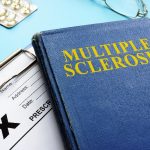
A blood test could help doctors spot the signs of knee osteoarthritis at least eight years before it shows up on X-rays, a new study claims. After analyzing the blood of 200 white British women, half diagnosed with knee osteoarthritis and half without, researchers discovered a small number of biomarkers distinguished the women with osteoarthritis from those without it. “We found we were able to identify people who are at risk for knee osteoarthritis, but what was exciting was that we were able to identify it eight years before they had any X-ray changes,” said senior study author Dr. Virginia Byers Kraus, a professor in the departments of Medicine, Pathology and Orthopedic Surgery at Duke University School of Medicine, in Durham, N.C. The study, published April 26 in the journal Science Advances, builds on previous research where the blood test demonstrated 74% accuracy in predicting knee arthritis progression and 85% accuracy in diagnosing knee arthritis. Knee arthritis strikes approximately 35 million adults in the United States. While there are no cures, the success of new therapies could hinge on identifying the disease early and slowing its progression. The researchers emphasized that just like heart disease, osteoporosis or Alzheimer’s disease, knee osteoarthritis is a chronic disorder that is typically diagnosed late in the game. By identifying it earlier, doctors could potentially stop the disease before it… read on > read on >





























-300x200.jpg)







-300x169.jpg)
